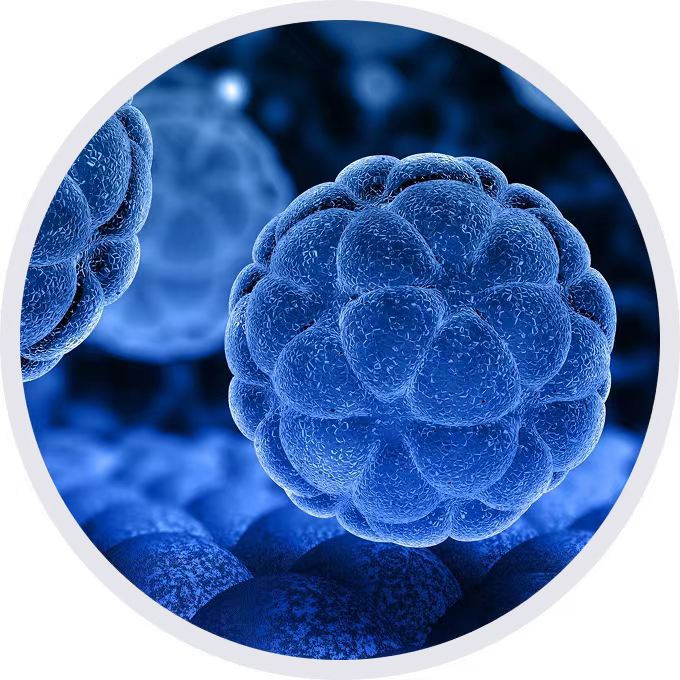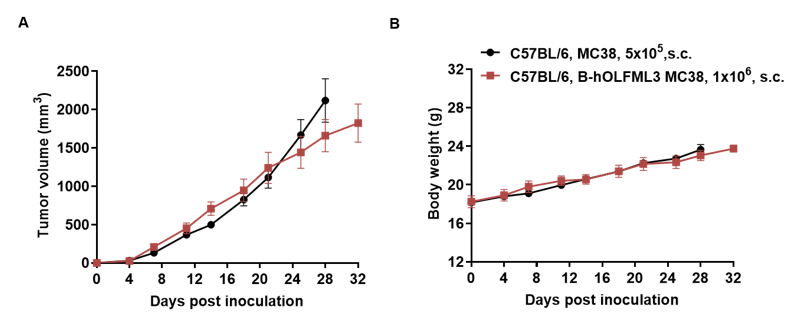
• 321865

| Product name | B-hOLFML3 MC38 |
|---|---|
| Catalog number | 321865 |
| Strain background | C57BL/6 |
| NCBI gene ID | 99543 (Human) |
| Aliases | ONT3; mONT3; HNOEL-iso; 2810002E22Rik |
| Tissue | Colon |
| Disease | Colon carcinoma |
| Species | Mouse |
| Application | B-hOLFML3 MC38 cells have the capability to establish tumors in vivo and can be used for efficacy studies. |
The mouse Olfml3 gene was replaced by human OLFML3 coding sequence in B-hOLFML3 MC38 cells. Human OLFML3 is highly expressed on the surface of B-hOLFML3 MC38 cells.
Gene targeting strategy for B-hOLFML3 MC38 cells. The exogenous promoter and human OLFML3 coding sequence were inserted to replace part of murine exon 2. The insertion disrupts the endogenous murine Olfml3 gene, resulting in a non-functional transcript.

Subcutaneous homograft tumor growth of B-hOLFML3 MC38 cells. B-hOLFML3 MC38 cells (1x106) and wild-type MC38 cells (5x105) were subcutaneously implanted into C57BL/6 mice (female, 7-week-old, n=5). Tumor volume and body weight were measured twice a week. (A) Average tumor volume ± SEM. (B) Body weight (Mean ± SEM). Volume was expressed in mm3 using the formula: V=0.5 X long diameter X short diameter2. As shown in panel A, B-hOLFML3 MC38 cells were able to establish tumors in vivo and can be used for efficacy studies.

B-hOLFML3 MC38 tumor cells growth of individual mice. B-hOLFML3 MC38 cells (1x106) and wild-type MC38 cells (5x105) were subcutaneously implanted into C57BL/6 mice (female, 7-week-old, n=5). As shown in panel, B-hOLFML3 MC38 cells were able to establish tumors in vivo and can be used for efficacy studies.